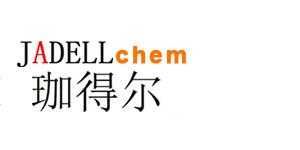Recombinant Human Dickkopf Related Protein-1 (HEK293-expressed) 可通过抑制 Wnt 信号通路来参与胚胎发育过程。
Synonyms
rHuDKK-1; hDkk-1; SK ; 重组人Dickkopf 相关蛋白-1 (DKK1) (hek293表达)
Species
HumanSource
HEK 293 Accession
O94907 Gene ID
22943 Molecular Weight
38-40 kDa AA Sequence
TLNSVLNSNA IKNLPPPLGG AAGHPGSAVS AAPGILYPGG NKYQTIDNYQ PYPCAEDEEC GTDEYCASPT RGGDAGVQIC LACRKRRKRC MRHAMCCPGN YCKNGICVSS DQNHFRGEIE ETITESFGND HSTLDGYSRR TTLSSKMYHT KGQEGSVCLR SSDCASGLCC ARHFWSKICK PVLKEGQVCT KHRRKGSHGL EIFQRCYCGE GLSCRIQKDH HQASNSSRLH TCQRHHHHHH H Biological Activity
The ED50 is <4 μg/mL as measured in stimulation of alkaline phosphatase activity using CCl-226 cells. Appearance
Lyophilized powder. Formulation
Lyophilized after extensive dialysis against PBS. Endotoxin Level
<0.2 EU/μg, determined by LAL method. Reconstitution
Reconstitute the lyophilized recombinant Human Dickkopf Related Protein-1 (HEK293-expressed) (rHuDKK-1) to 100 μg/mL using ddH2O or PBS. Storage & Stability
Lyophilized recombinant Human Dickkopf Related Protein-1 (HEK293-expressed) (rHuDKK-1) is stored at -20°C. After reconstitution, it is stable at 4°C for 1 week or -20°C for longer. It is recommended to freeze aliquots at -20°C or -80°C for extended storage. Shipping
Room temperature in continental US; may vary elsewhere. Background
Human Dickkopf Related Protein-1 a member of the dickkopf family. It is a secreted protein with two cysteine rich regions and is involved in embryonic development through its inhibition of the Wnt signaling pathway. Dickkopf WNT signaling pathway inhibitor 1 (Dkk1) is a protein-coding gene that acts from the anterior visceral endoderm[1][2]. DKK1 is demonstrated to antagonize the Wnt/β-catenin pathway via a reduction in β-catenin and an increase in OCT4 expression[3]. |



